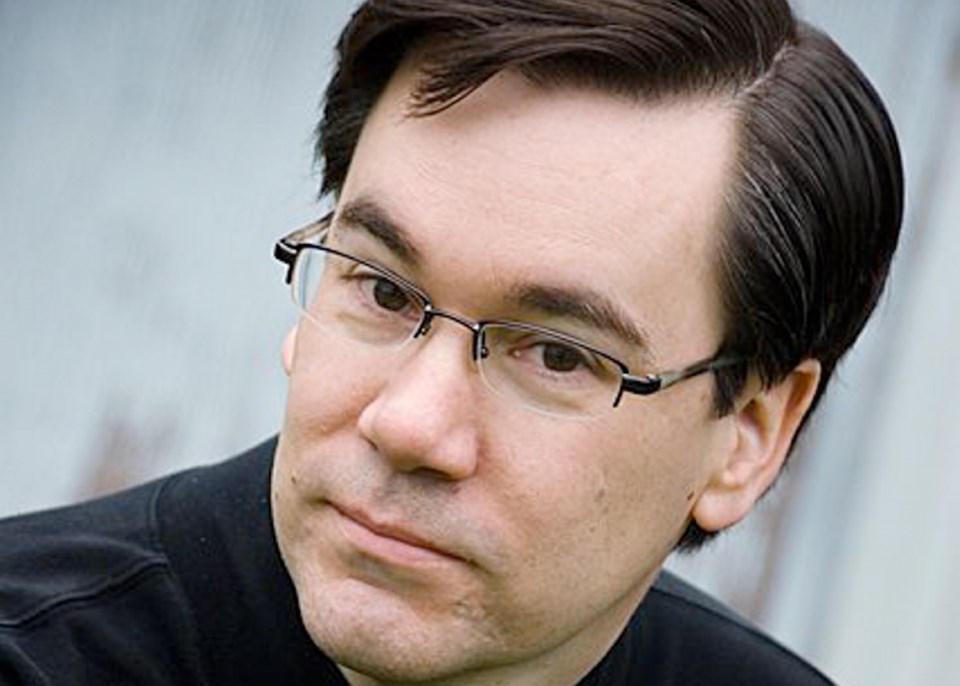The fall classical music season is at its height and what follows covers only some of the coming week’s offerings.
On Friday, the 25th season of the Victoria Chamber Orchestra will open with an attractive program of string-ensemble music by Mozart, comprising works both early and late — or as “late” as works can be from a composer who died at 35 (7:30 p.m., First Metropolitan United Church, $20/$15, music students free; ).
The early works are two divertimentos Mozart composed in his native Salzburg in 1772, when he was 16, and the lovely Serenata notturna from 1776, which features solo as well as massed strings. The late works, from the 1780s, are an Adagio and Fugue (adapted from a two-piano piece) and the popular, conspicuously perfect serenade known as Eine kleine Nachtmusik.
On Saturday, conductor George Corwin, who has lately been appearing in the DieMahler Chamber Music Series, will return to lead two masterpieces for large chamber ensembles: Stravinsky’s Histoire du Soldat (Soldier’s Tale) and William Walton’s Façade (2:30 p.m., St. Mary the Virgin Anglican Church, 1701 Elgin Rd., $25/$22.50, students by donation; ).
Soldier’s Tale (1918) is a modestly scaled, accessible work that was nonetheless a groundbreaking and influential specimen of early musical modernism. This quirky theatrical piece, based on a Russian folk tale, tells of a fiddle-playing soldier who sells his soul to the devil in exchange for riches, only to lose everything (including the princess he has wed) when the devil calls in the debt.
We usually hear only the instrumental suite from it, but on Saturday we will hear the complete hour-long work, with its the spoken roles (Narrator, Devil, Soldier).
The charming, very diverse, no less quirky Façade (1922-29), Walton’s first major work, is based on poems by Edith Sitwell, whom Walton met as a student at Oxford. (The poems are recited over an instrumental background.) The young Walton drew on many sources in this score, including Soldier’s Tale and popular music of the 1920s.
Saturday’s performance will be something of a family affair, with the spoken roles taken by three of Corwin’s children.
On Sunday, the Victoria Symphony, led by its associate conductor, Giuseppe Pietraroia, will launch its Classics Series with a program whose main works are Haydn’s popular Clock Symphony (No. 101) and Beethoven’s Piano Concerto No. 4, which will feature the local debut of pianist Eric Lu (2:30 p.m., Farquhar Auditorium, University of Victoria, $35-$58; ).
A native of Massachusetts, Lu won prizes in Chopin competitions in Warsaw and Miami in 2015, when he was just 17, and in 2018 won the prestigious Leeds International Piano Competition. He is already enjoying a major international concert career. This year, he made his London and Paris debuts, appeared for the first time in the BBC Proms and replaced the legendary Martha Argerich on short notice in Singapore.
Lu has made recordings, too, including a strong but sensitive live performance of the Beethoven Fourth, released last year by Warner Classics.
And yet Lu is still a student, at the Curtis Institute of Music in Philadelphia.
Finally, two concerts at the :
The first, a guest recital on Sunday, marks the return of the Cuarteto Latinoamericano, the most celebrated string quartet in Latin America (8 p.m., Phillip T. Young Recital Hall, $20/$12).
Formed in 1982, the quartet is based in Mexico, but tours widely. It has personal and professional connections, going back decades, with the Lafayette String Quartet, which is in residence at UVic. (The LSQ first brought the Cuarteto to Victoria in 1997.)
Through both concerts and recordings, the Cuarteto Latinoamericano is internationally recognized as an adventurous champion of their region’s music. Sunday’s program will include works by composers from Brazil, Chile and Mexico, as well as from Spain and Canada.
On Wednesday, Oct. 23, the husband-and-wife duo of soprano Sharon Krebs and pianist Harald Krebs (a UVic professor) will offer another program in their regular series Lieder at Lunch, this one devoted to songs by Clara Schumann, whose 200th birthday is being celebrated this year (12:30 p.m., Room B037, free).



